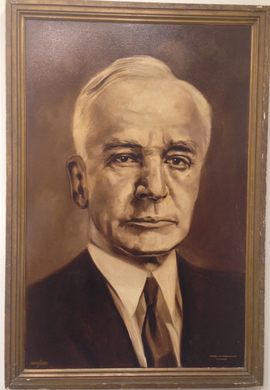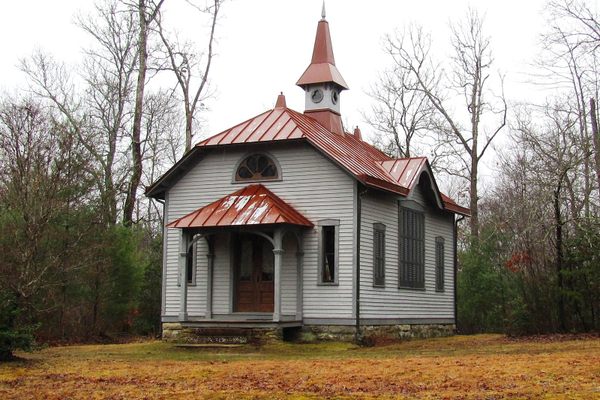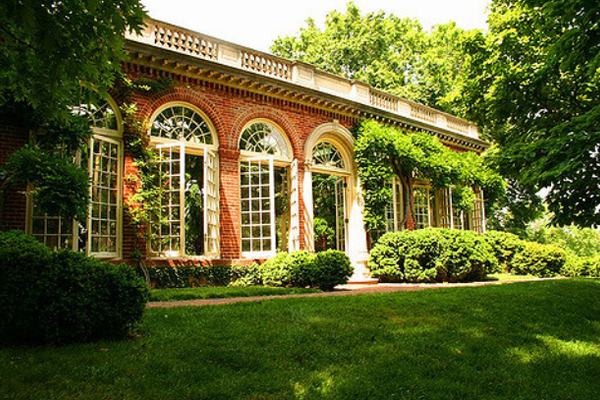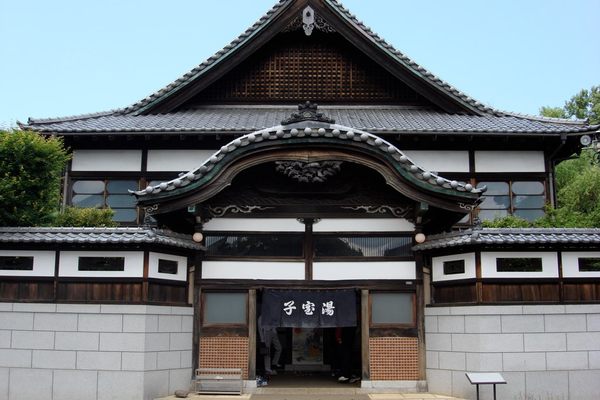Cordell Hull Birthplace Museum
The longest-serving U.S. Secretary of State and Nobel Peace Prize winner was born in this humble cabin.
The life of Cordell Hull is perhaps the archetypical American success story of a poor farmer’s son who climbed his way to the top echelons of public service. Born in the rural hamlet of Olympus (now Byrdstown), Tennessee, in 1871, Hull was academically inclined from a young age, and by the time he was 19, he was already a practicing lawyer. By 22, he was a member of the Tennessee House of Representatives, which he left to fight in the Spanish-American War.
He later served in the U.S. House of Representatives and Senate as a Democrat from Tennessee, where he was the chief architect of the federal income tax and inheritance tax laws. But it was as Franklin D. Roosevelt’s Secretary of State that Hull had his greatest achievements.
Serving from 1933 to 1944, Hull steered the nation’s foreign policy through the Great Depression and most of World War II. Oddly for a man of his position, he was shy and lacked charisma, but nevertheless was an enormously successful negotiator. Among his achievements were the implementation of the Good Neighbor Policy with Latin America and numerous international free trade deals.
A fierce supporter of Western democracies during the tumultuous politics of the ’30s, he was also an outspoken critic of Japan’s incursion into China. Famously, at the moment the Japanese bombed Pearl Harbor, he was in the midst of negotiating a peace deal with the Japanese ambassador. Reportedly, the ambassador fled Hull’s office when he made his displeasure known.
Hull’s career and policies were not without significant controversy and tragic consequences, however. In 1939, prior to the start of World War II, he advised President Roosevelt to turn away the German ship SS St. Louis from American shores, thus denying asylum to more than 900 Jews fleeing Nazi Germany. Although this fateful decision was made in compliance with the draconian Immigration Act of 1924 at a time when the United States was trying to maintain neutrality, Hull’s involvement in this tragic episode has consistently placed him on the list of top 10 most controversial Nobel Peace Prize winners.
Furthermore, as Secretary of State, Hull was not immune from the palace intrigues that have consistently plagued both antecedents and successors. Perhaps most notorious was his acrimonious relationship with Under Secretary of State Sumner Welles, who might have been the recipient of the Nobel Prize instead of Hull had the latter not forced him out of public service for soliciting men for sex. Welles was actually the author of the Atlantic Charter, which formed the basis for the United Nations, but Hull, as it turned out, was by far the better statesman.
On Roosevelt’s recommendation, Hull was awarded the Peace Prize in 1945 for his part in creating the United Nations. By that time, Hull had retired as a result of failing health and he died 10 years later.
Though he is buried in Washington National Cathedral, his largest monument is the museum and homestead that bears his name in Byrdstown. On display are many of his most significant personal effects including accoutrement from the Spanish-American War, his official papers, a recreation of his office, gifts from various international heads of state including Winston Churchill, and a replica of his Nobel Prize.
Know Before You Go
The museum is in the 55-acre Cordell Hull Birthplace State Park, which also features hiking trails and Bunkum Cave.
Plan Your Trip
The Atlas Obscura Podcast is Back!

























Follow us on Twitter to get the latest on the world's hidden wonders.
Like us on Facebook to get the latest on the world's hidden wonders.
Follow us on Twitter Like us on Facebook